Nederlandse versie onderaan!
Dear readers,
Our town has changed. It has become a city of the world. Not comparable to Paris nor Amsterdam, but still, in another sense. Around six hundred refugees from around the world are temporarily living here in a vacation park (used as an asylum center) in my hometown.
Oldest is leaving this Summer. He will be traveling around the world for one year, together with his girlfriend. I told him he doesn’t need to because the world is in our backyard now (this trick didn’t work of course; his first ticket to Japan is booked).
Three years ago we had the same amount of refugees here, during three months. Six fabulous women took the initiative to write personal stories about the refugees (945 in Images), and I joined them. I also volunteered to teach Dutch once a week.
This time I am promoted in my volunteer work 🙂 I organize and teach the Dutch lessons. We started again with 945 in Images, to bring the stories of the refugees to the rest of our town and to the world. But things have changed, due to the GDPR law* (legislation on privacy) it has become far more difficult to put their testimonies online. Nevertheless we keep going!
But I don’t want to talk about what I am doing, I want to take you with me, to have a glimpse of the life of people who felt the urge to flee from their homes.
I started teaching two months ago. During the first lesson I introduced myself and told my students where I came from. The map of the world was on the table, so I pointed out Belgium. I asked the students to do the same. Fingers were planted on El Salvador, Colombia and Senegal. Two men looked at me frustrated, a little upset: “Our country is not on the map!” I answered: “All countries should be there, where are you from?” “Palestina!”
We started with pictures for the first Dutch words. I could communicate a little with the Spanish speaking students in English, with Gabriel from Senegal in French, but not with the two men from Palestina. But Haidar from Palestina could speak a bit of Spanish, as he had lived in Spain for one year, on the streets with his three children. So the girls and boys from Central America could speak Spanish to him, and he could translate to his fellow student in Arabic.
The Bible came into my mind – and that doesn’t happen often – or to be more precise, the story of the tower of Babel. Do you remember why we were punished? Because of pride and arrogance.
The world would have been an easier place if we all spoke the same language. But with the difference in languages comes the difference in cultures, and that is something to cherish, most of the time 😉
Back to my lessons. The students are very motivated. We try to help one another with whatever language we know or we use sign language. While teaching I sometimes run into unspoken fear or sadness. I ask them an easy question, but the answer might be complicated. When I asked Haidar if he was married, he confirmed. But later on he told me the mother of his three children was not here, while his children were. The expression on his face told me not to ask further.
Compared to three years ago, more families are living here now. There are two young women in my class, always together, and both from the same country in Central America. I asked Juliana and Isabella if they were family. The looked at one another, a bit unsure : “No, we are friends. But we are so close, we feel like we are family.”
What have they all been through? This is what crosses my mind most of the time.
With 945 in Images we have done three interviews so far. When we talked to Alvin and Jazmina from Nicaragua, we were stupefied to hear what they had been through at such a young age. They were only students standing up for what they felt was right. Jazmina was in tears the whole time while she told us her story. When we left, packed in the small hallway of the trailer, she asked us with her soft and trembling voice: Can I hug you? She was missing her family tremendously.
Witnessing these people, hearing what they tell you or noticing what they cannot tell you, makes you feel humble. Also sad and frustrated at some point.
I certainly feel grateful that I was able to bring together a great team of volunteers. All people from my hometown. Some were (Facebook) friends and some of them I didn’t know at all. Some of them were hesitant in the beginning, because they hadn’t taught before or they didn’t know what to expect. But they all are enthusiastic and driven now. I get to hear their experiences, anecdotes, plus advice and suggestions. One volunteer suggested to make the refugees members of his sports team. With another friend we are still brainstorming on doing something on Saturday afternoons. Daughter might join the new team of volunteers. We keep going.
So I haven’t only met new people from all over the world these past months, I’ve also had the pleasure of getting to know new passionate people from my own town. An enrichment.
All these refugees made a big change coming here. It means just a small change in our daily life here in my hometown, but still, it is a change, a little step towards more understanding and empathy.
You also want to help?
Bye, au-revoir, adios, إلى اللقاء
Sophia
*All names are changed
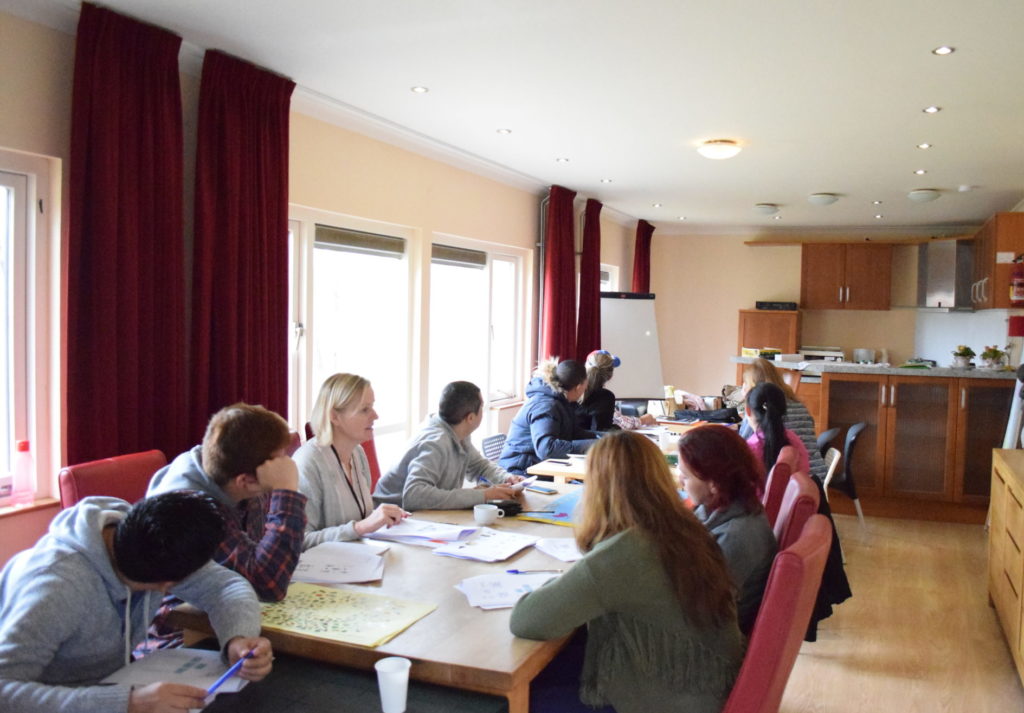
Beste lezers,
Onze stad is veranderd. Het is een wereldstad geworden. Niet te vergelijken met Parijs of Amsterdam, maar toch, in een andere betekenis. Ongeveer zeshonderd vluchtelingen wonen tijdelijk in een vakantiepark (gebruikt als asielcentrum) hier in onze gemeente.
Oudste vertrekt deze zomer op wereldreis samen met zijn lief. Ik zei hem dat dit niet meer nodig is, heel de wereld bevindt zich nu in onze achtertuin. Helaas werkt dit truukje niet, zijn eerste ticket naar Japan is geboekt.
Drie jaar geleden verbleef hetzelfde aantal vluchtelingen hier. Zes fantastische vrouwen namen het initiatief om de vluchtelingen te interviewen (945 in beeld), en ik sloot mij bij hen aan. Ik gaf ook één keer per week Nederlandse les.
Deze keer promoveerde ik in mijn vrijwilligerswerk 😉 Ik organiseer nu zelf de Nederlandse lessen. We zijn ook opnieuw gestart met 945 in beeld, om de verhalen van de nieuwkomers te delen met onze stad en de rest van de wereld. Er is veel veranderd intussen. Omwille van de GDPR wet (richtlijnen omtrent privacy) kunnen we moeilijker de hele getuigenis van de vluchtelingen online delen. Maar we blijven ervoor gaan!
Genoeg gebabbeld over wat ik doe. Ik wil jullie meenemen, om een klein beetje meer inzicht te krijgen in het leven van een vluchteling.
Ik startte twee maanden geleden met lesgeven. Tijdens de eerste les stelde ik mezelf voor : mijn naam, dat ik getrouwd ben en drie kinderen heb en waar ik vandaan kom. Een grote wereldkaart lag voor ons op tafel, dus wees ik België aan. Ik vroeg de studenten om hetzelfde te doen. Vingers belandden op El Salvador, Columbië en Senegal. Twee mannen keken me gefrustreerd aan : “Ons land staat niet op de kaart !”. Ik antwoordde : “Alle landen staan erop, van waar komen jullie ?” “Palestina ! ”
We startten met pictogrammen om de eerste woorden Nederlands uit te spreken. Ik kon een beetje communiceren in het Engels met de spaanstalige studenten, in het Frans met Gabriël uit Senegal, maar niet met de mannen uit Palestina. Maar Haidar uit Palestina kon een beetje Spaans spreken, hij had samen met zijn drie kinderen een jaar op straat geleefd in Spanje. De meisjes en jongens uit Centraal-Amerika spraken in het Spaans tegen hem en hij kon dan verder vertalen naar het Arabisch aan zijn mede-landgenoot.
Plots dacht ik aan de bijbel – en dat gebeurt niet vaak 🙂 – en meer specifiek aan het verhaal van de Toren van Babel. Weet jij nog waarom we gestraft waren ? Omwille van trots en hoogmoed.
Het zou er zoveel eenvoudiger aan toe gaan in de wereld indien we allemaal dezelfde taal spraken. Maar met het verschil in taal, komt ook het verschil in cultuur en dat is toch iets om te koesteren, meestal toch 😉
Terug naar de les. De studenten zij zo gemotiveerd. We proberen elkaar te helpen in elke taal die we kennen of we gebruiken gebarentaal. Tijdens het lesgeven stoot ik soms op onuitgesproken angst of onverwerkt verdriet. Ik stel hen een eenvoudige vraag, maar het antwoord is dat niet. Wanneer ik Haidar vroeg of hij getrouwd was, knikte hij ja. Later vertelde hij dat de moeder van zijn kinderen niet hier verbleef, zijn kinderen wel. Ik merkte dat ik beter niet verder vroeg.
Er wonen nu meer gezinnen, in vergelijking met drie jaar geleden. Twee jonge vrouwen uit Centraal-Amerika zijn altijd samen. Ik vroeg Juliana en Isabella of ze familie waren. Ze keken elkaar een beetje onzeker aan : “Neen, we zijn vriendinnen. Maar we staan zo dicht bij elkaar dat het aanvoelt als familie. ”
Wat hebben ze allemaal meegemaakt ? Die vraag dwaalt constant door mijn gedachten.
Met 945 in beeld hebben we tot nu toe drie interviews gedaan. Wanneer we spraken met Alvin en Jazmina uit Nicaragua, waren we verstomd om te horen wat ze allemaal doorgemaakt hebben op zo’n jonge leeftijd. Ze waren gewoon studenten die opkwamen voor hun rechten. Jazmina huilde bijna de hele tijd terwijl ze haar verhaal vertelde. Toen we vertrokken, opeengepakt in het kleine halletje van de trailer, vroeg ze ons met een trillende stem : Mag ik jullie een knuffel geven ? Ze miste haar familie verschrikkelijk.
Deze mensen ontmoeten, luisteren wat ze te vertellen hebben en aanvoelen wat ze niet kunnen zeggen, maakt je nederig. Ook triest en gefrustreerd soms.
Ik voel me alleszins heel dankbaar dat ik een groot team van vrijwilligers kon samenbrengen. Allemaal mensen uit mijn dorp. Sommigen waren al vrienden, sommigen Facebookvrienden en anderen kende ik helemaal niet. Velen twijfelden om mee te doen, omdat ze nooit les gegeven hadden of nog nooit in een vluchtelingencentrum geweest waren. Het is ook moeilijk, je weet niet goed wat te verwachten. In elk geval, iedereen is nu heel enthousiast en gedreven. Ik krijg hun ervaring, anecdotes, advies en suggesties te horen. Eén van de vrijwilligers stelde voor om de vluchtelingen te laten deelnemen aan zijn sportsteam. In het asielcentrum valt niet veel te beleven, vooral in het weekend vervelen de mensen zich. Samen met een vriendin ben ik nog aan het brainstormen om een activiteit op zaterdagnamiddag te organiseren voor de kinderen en ook de volwassenen. Dochter wil aan dit nieuwe team deelnemen, als vroegere leidster van een jeugdbeweging zou dat ideaal zijn. Zo blijven we goed bezig.
Ik heb niet enkel mensen vanuit alle windhoeken uit de wereld ontmoet de laatste maanden, ik had het geluk om ook al deze geëngageerde mensen uit mijn eigen stad te leren kennen. Een verrijking.
De vluchtelingen hebben een enorme stap gezet om naar hier te komen. Voor ons betekent dit slechts een kleine verandering in ons dagelijks leven, maar niettemin een kleine stap voorwaarts naar meer begrip en empathie.
Wil je ook helpen ?
Bye, au-revoir, adios, إلى اللقاء
Sophia
*Alle namen zijn gewijzigd
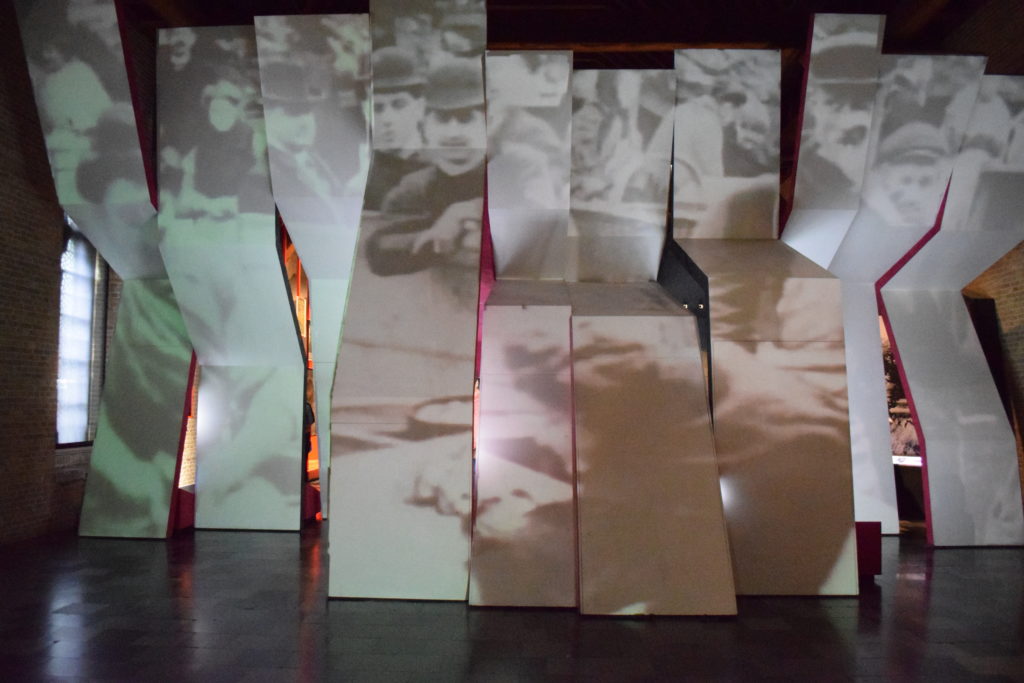
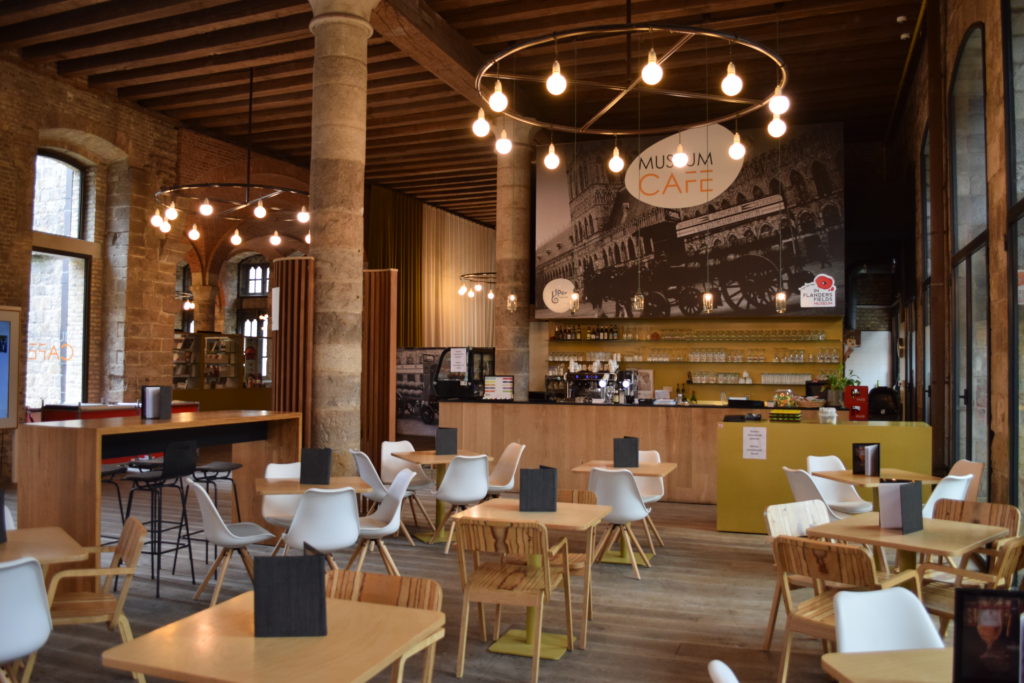
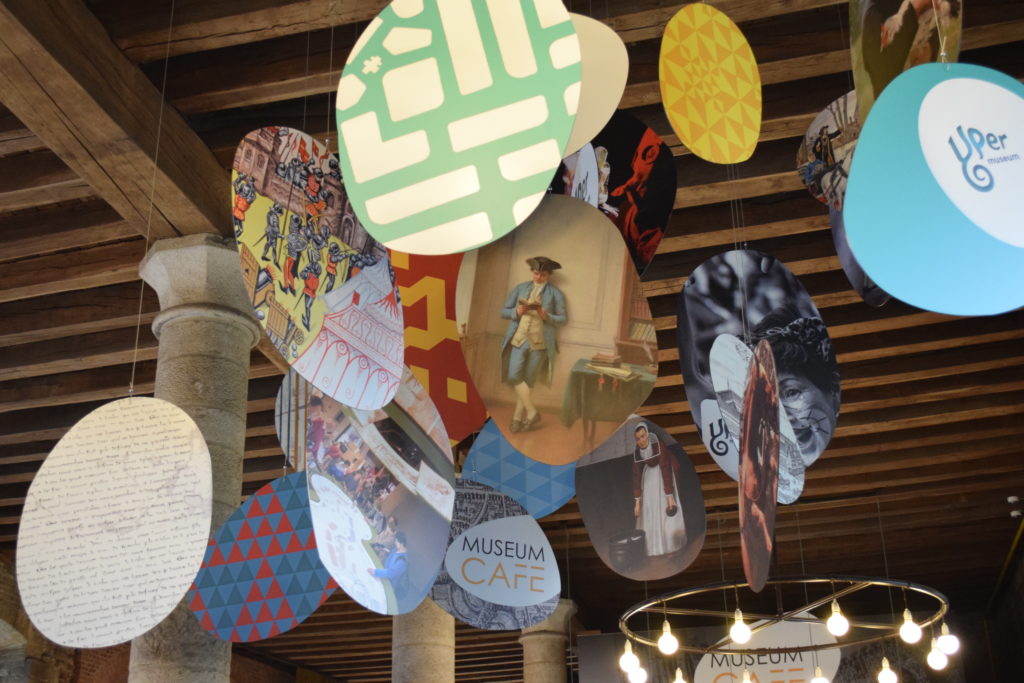
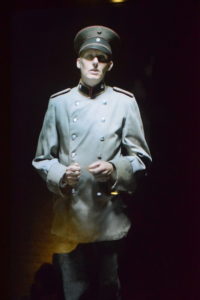 There are also testimonies, on videos, played by actors. But they looked real and were very touching. The movie of the Christmas night was the most moving, I thought, though I had heard the well-known story several times. In this testimony it was played by four soldiers, English, French, German and Belgian. How they, only for a short moment, ceased the war and sang together:
There are also testimonies, on videos, played by actors. But they looked real and were very touching. The movie of the Christmas night was the most moving, I thought, though I had heard the well-known story several times. In this testimony it was played by four soldiers, English, French, German and Belgian. How they, only for a short moment, ceased the war and sang together: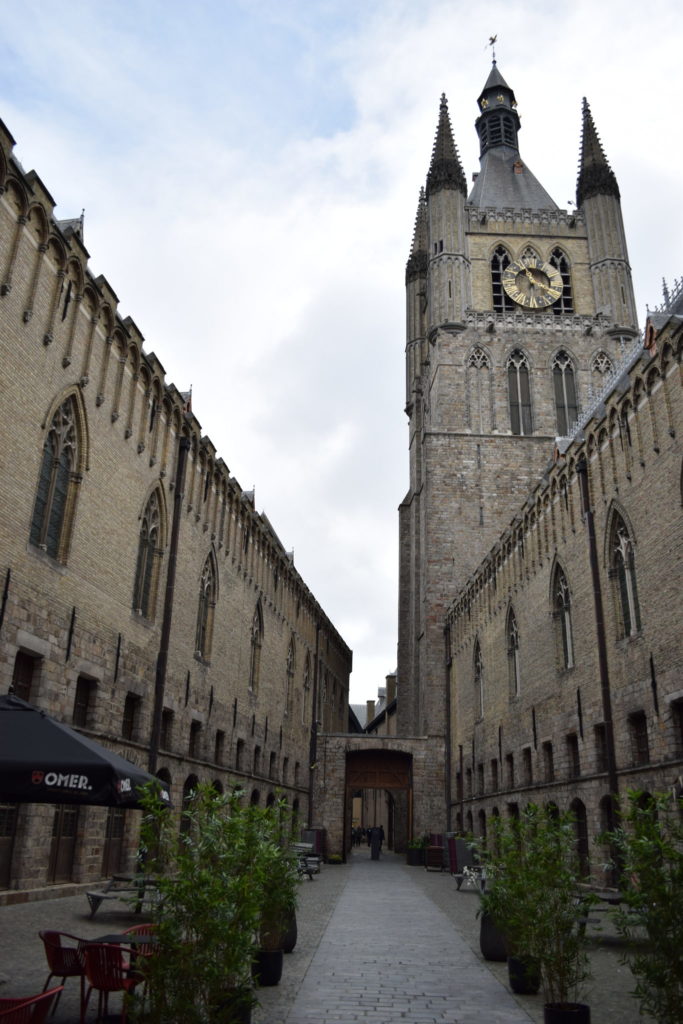
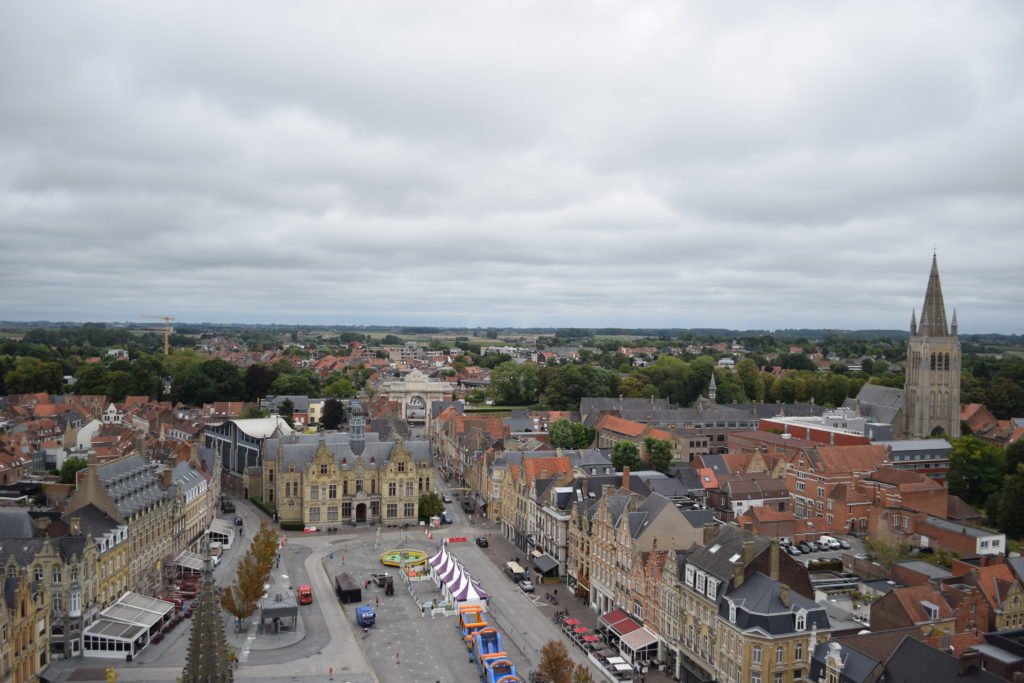
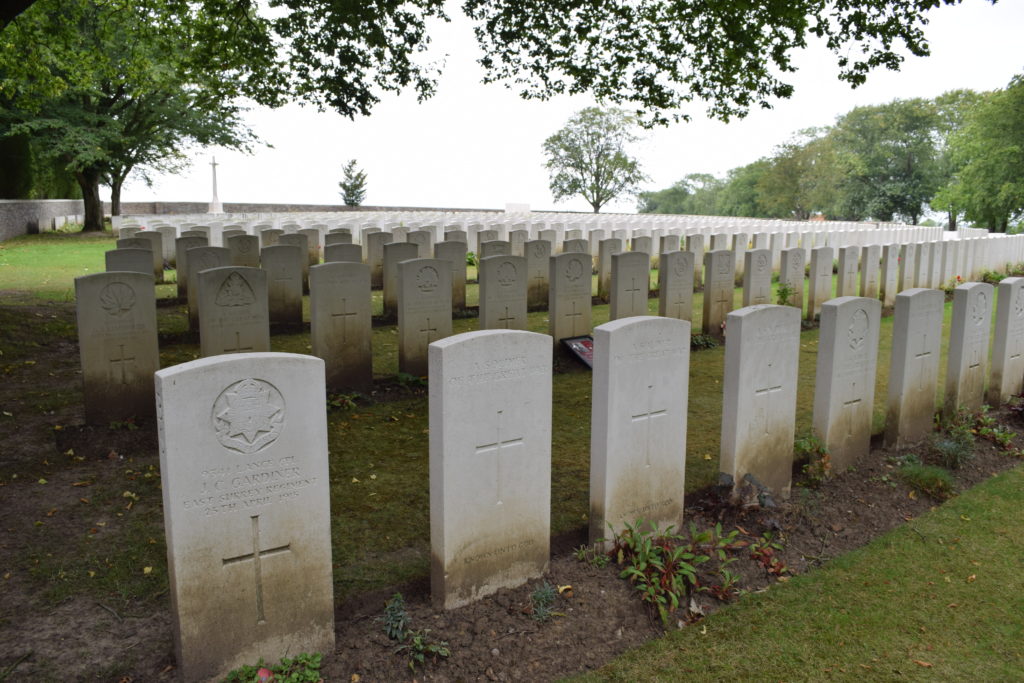
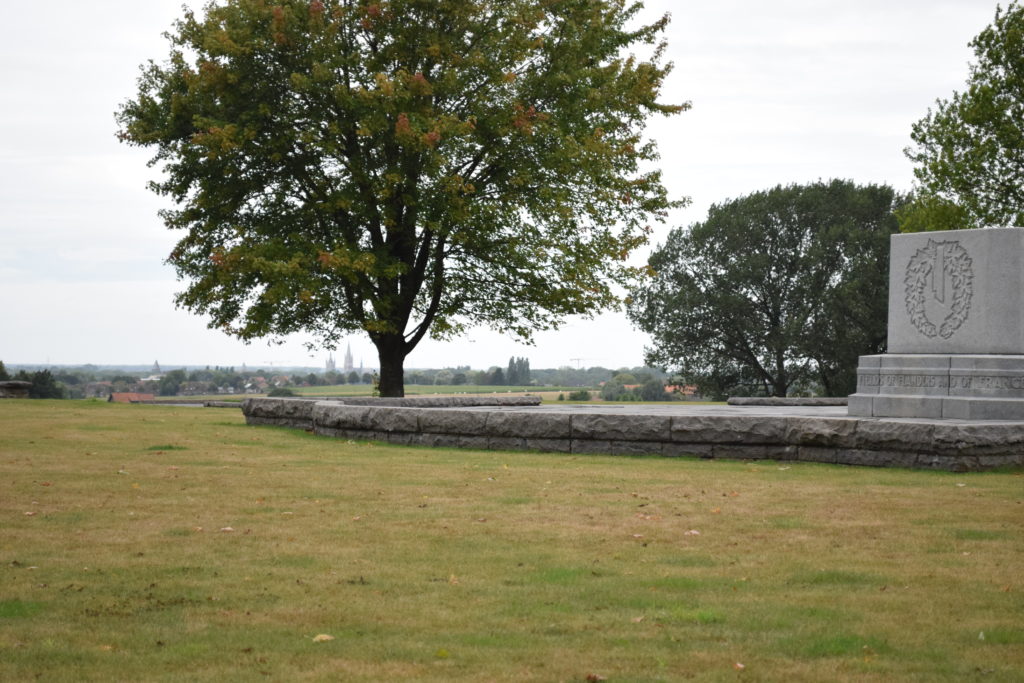
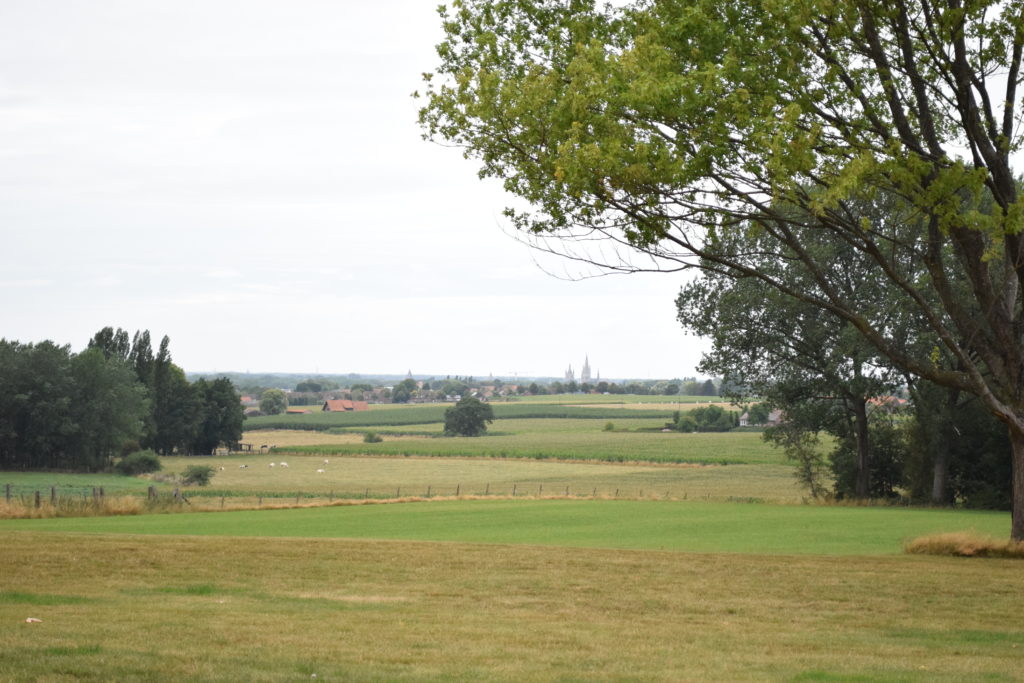

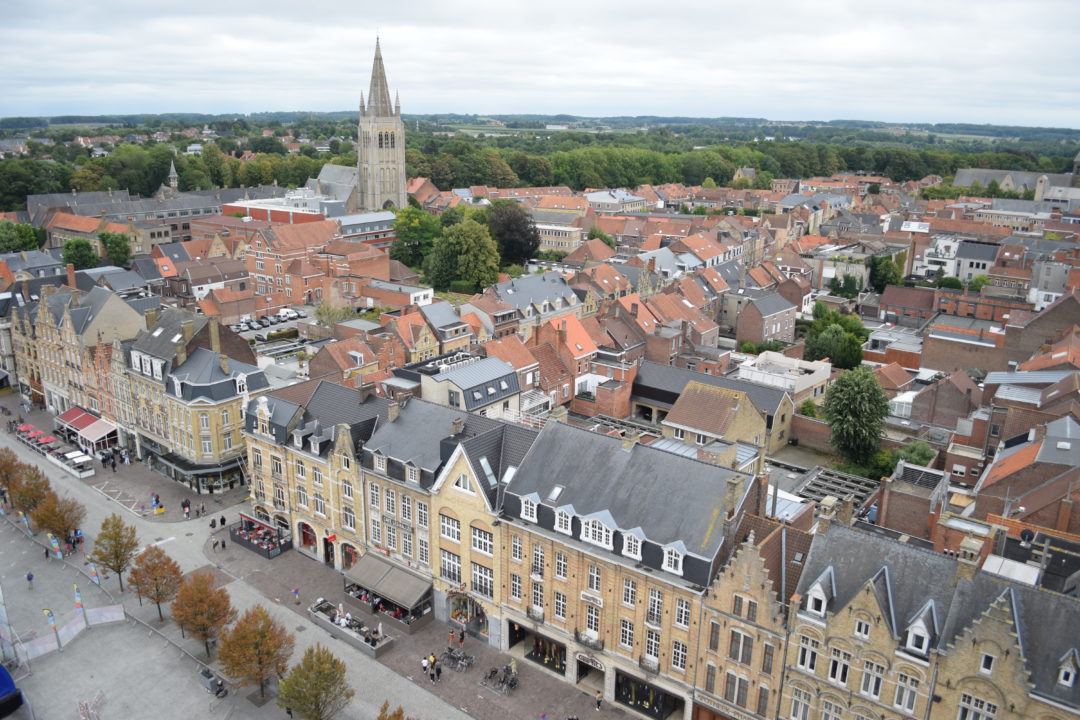
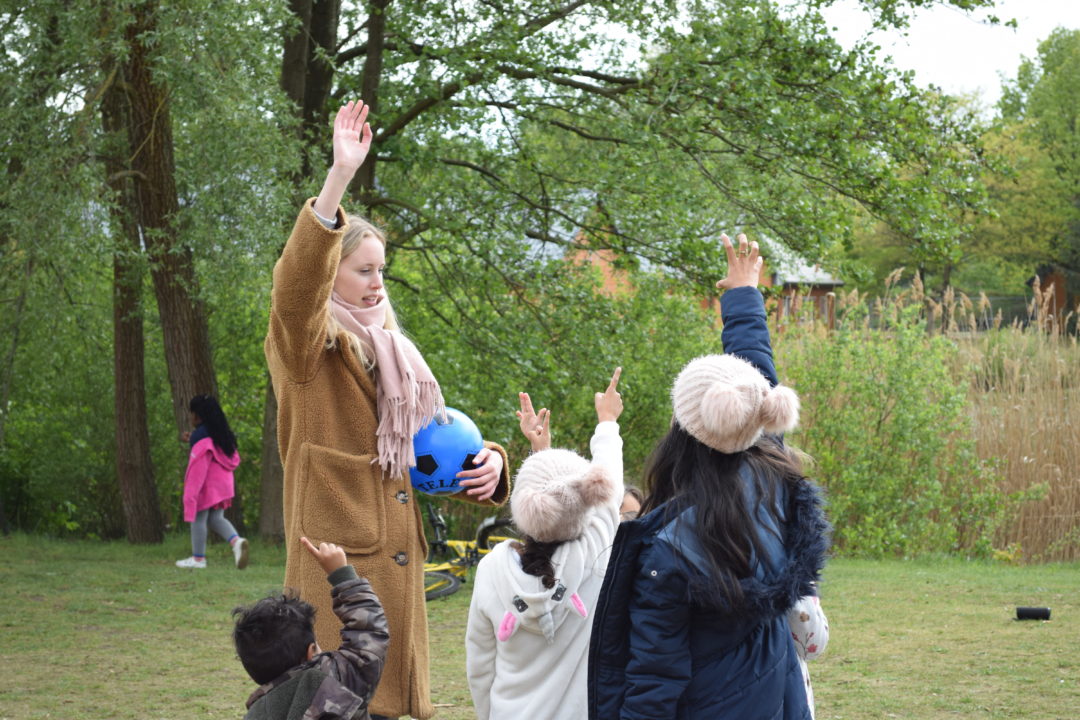
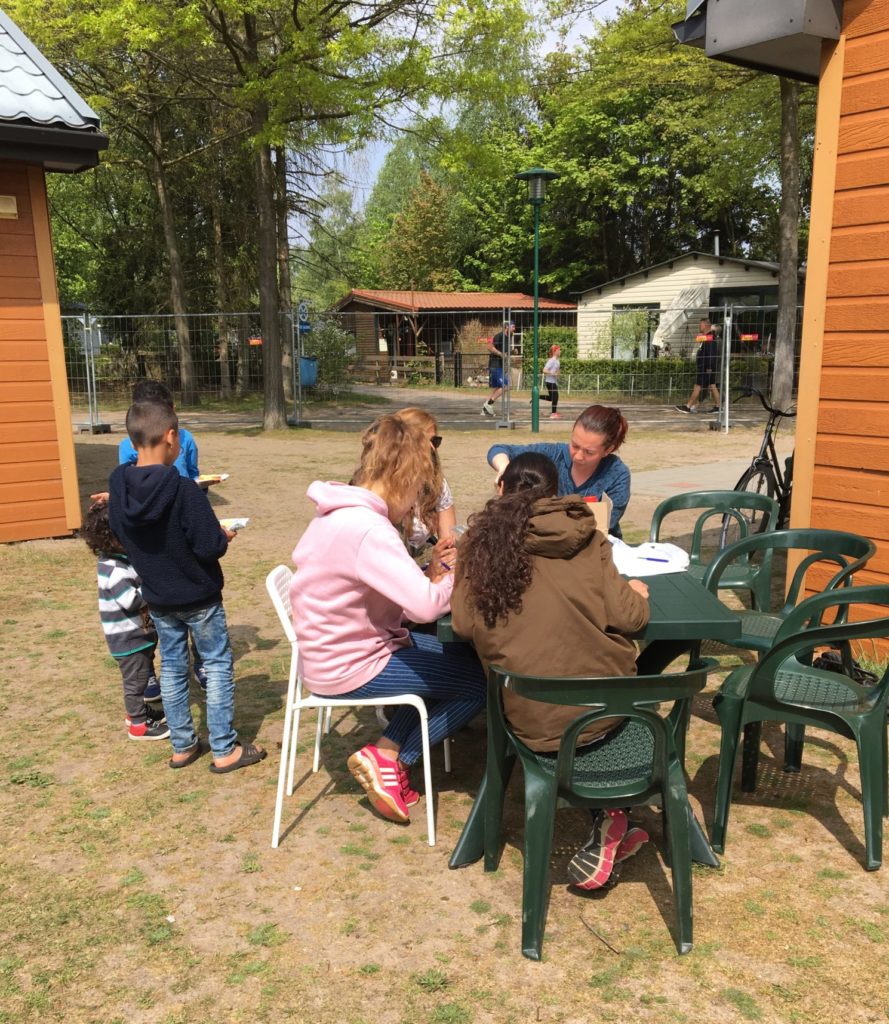 On Wednesday I went to the center for our
On Wednesday I went to the center for our 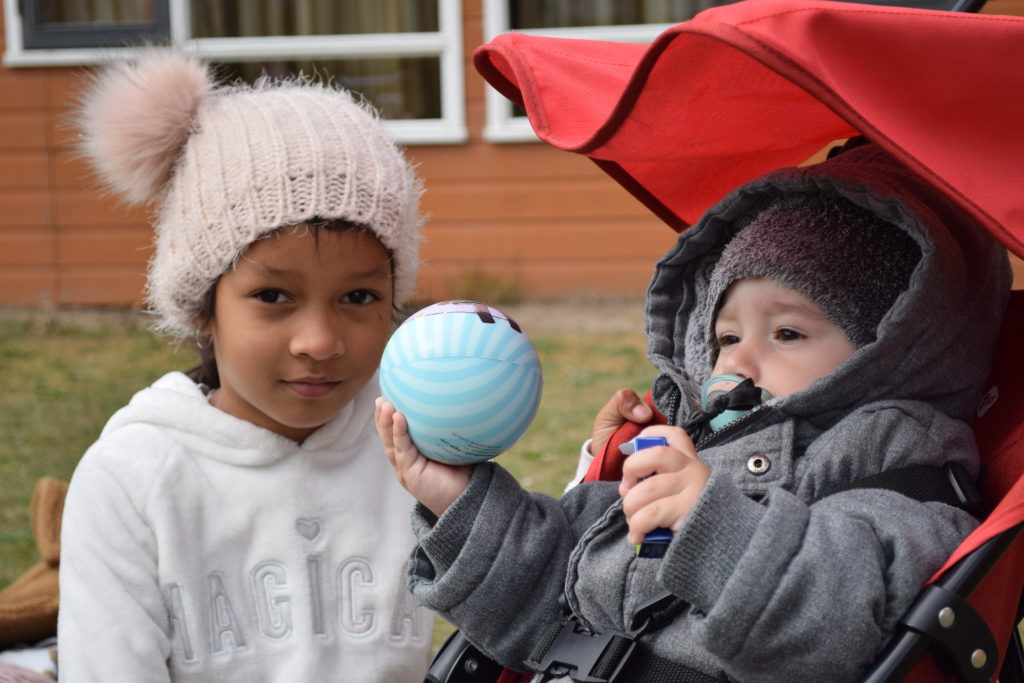
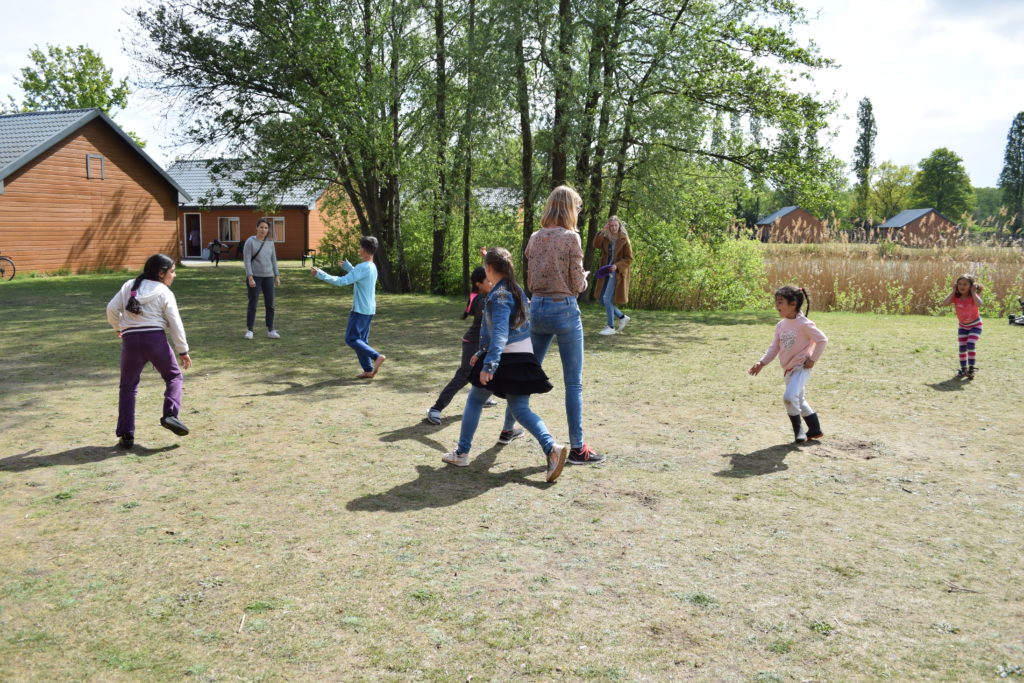
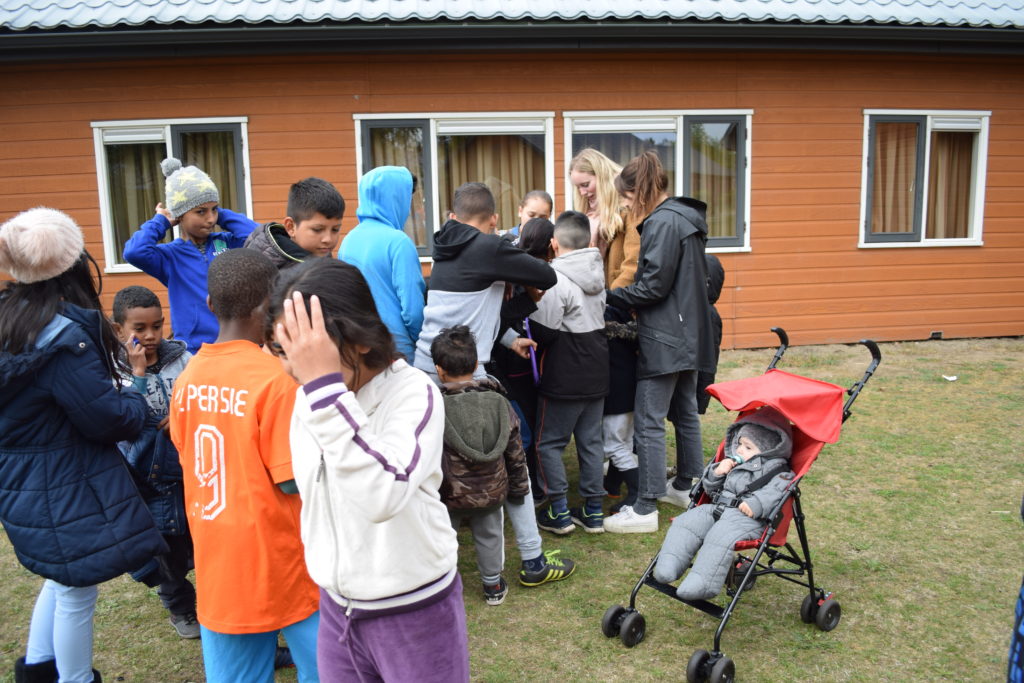
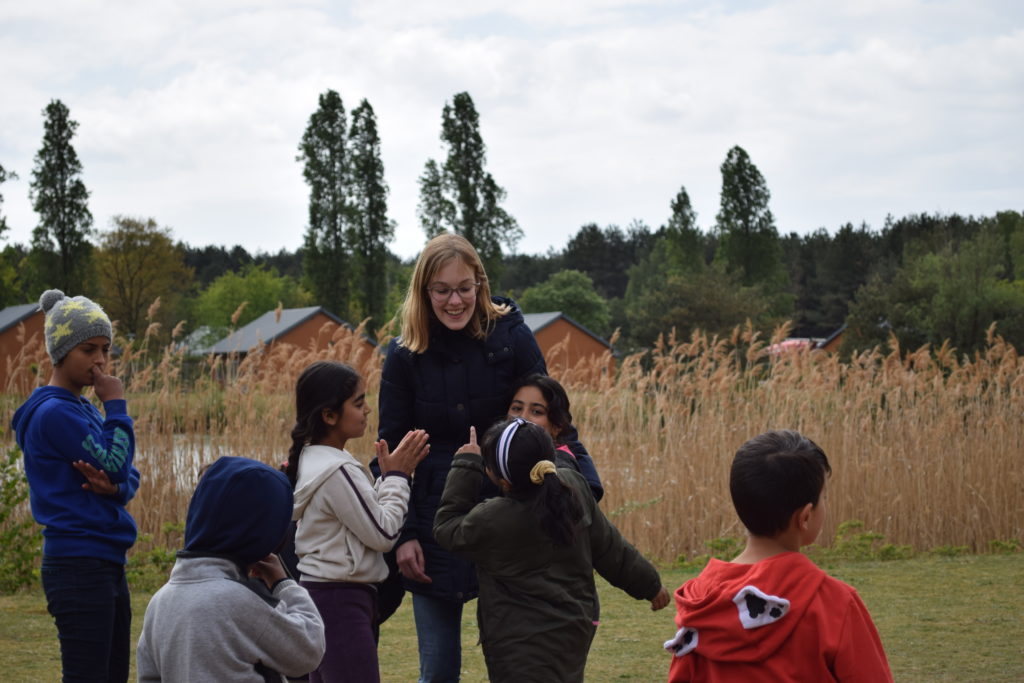
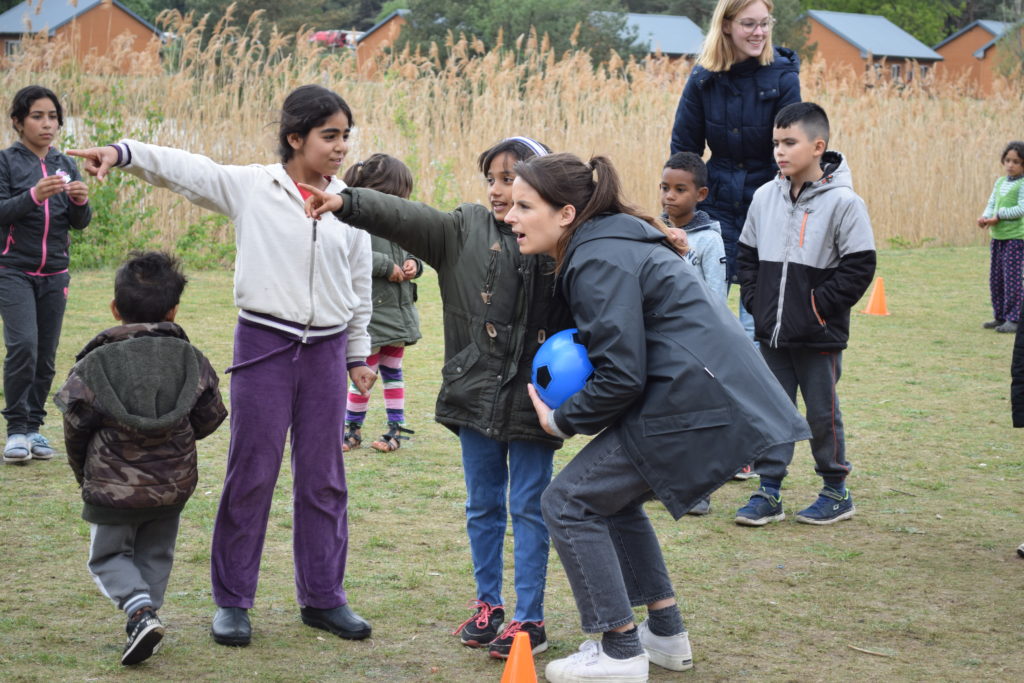
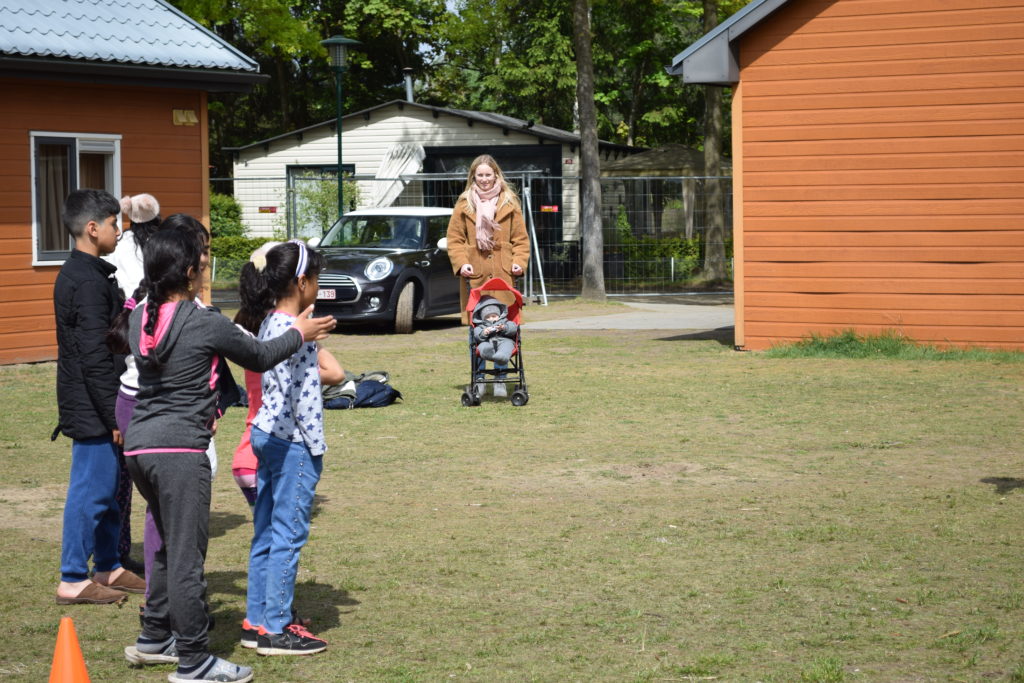
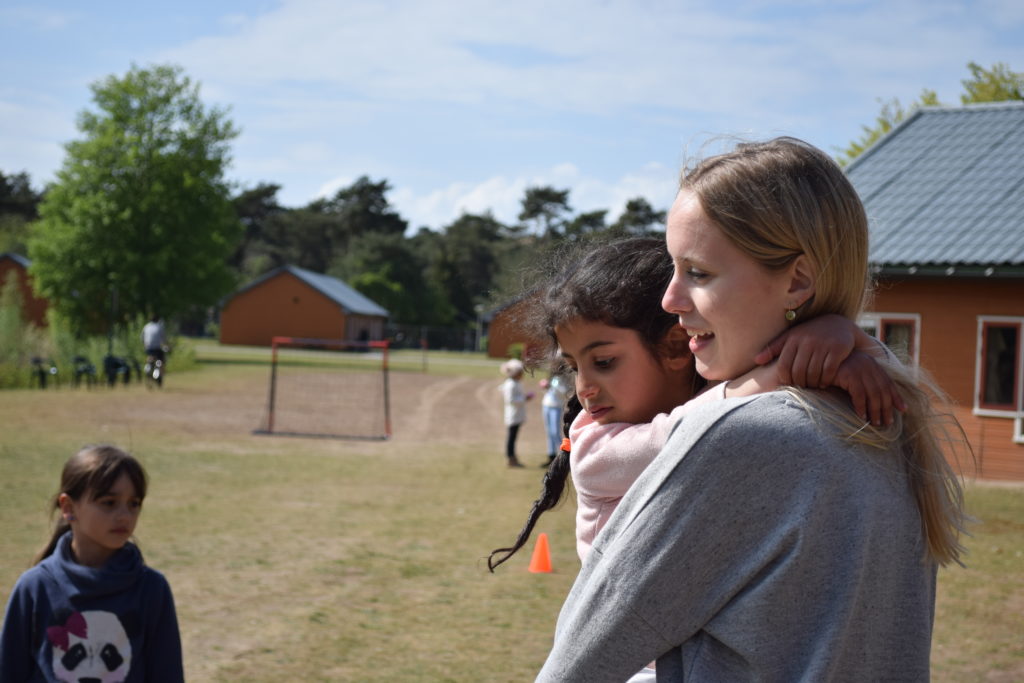
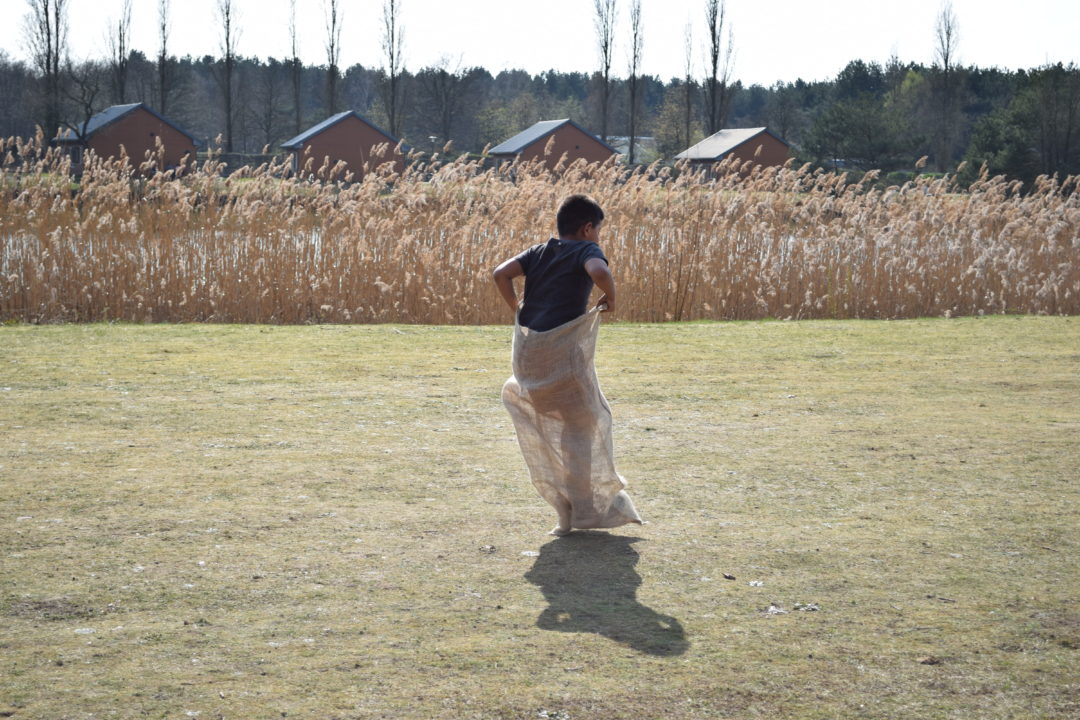
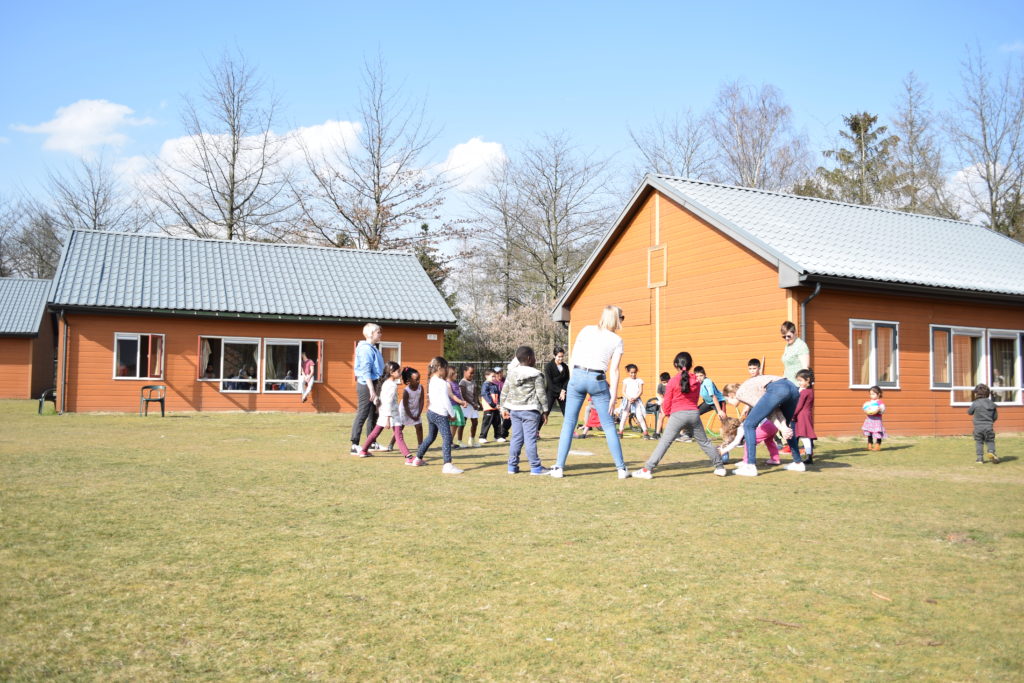
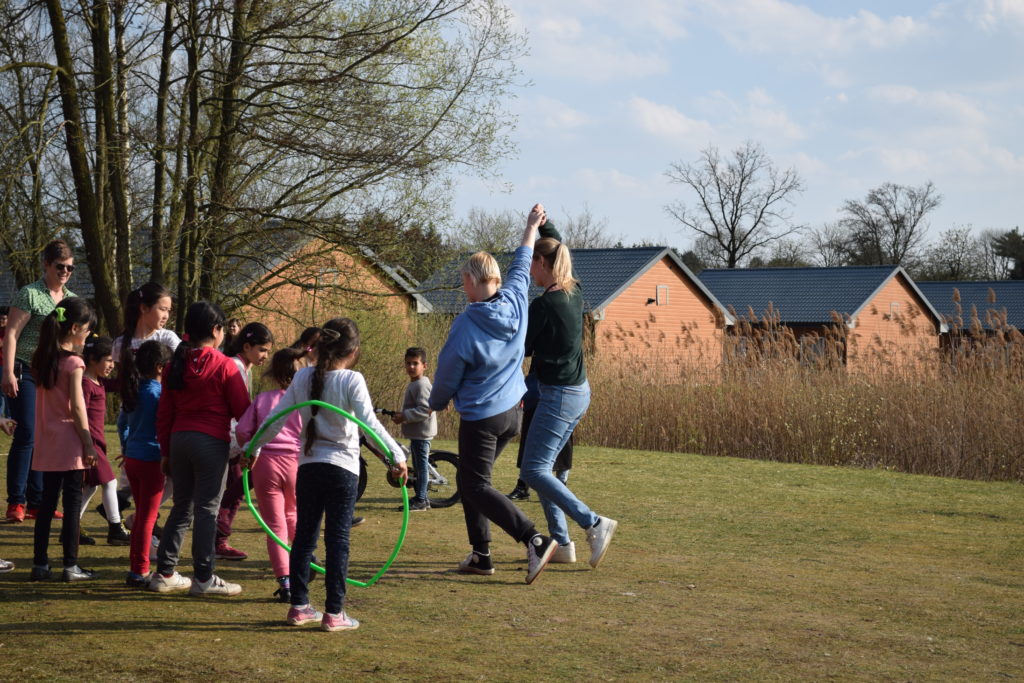
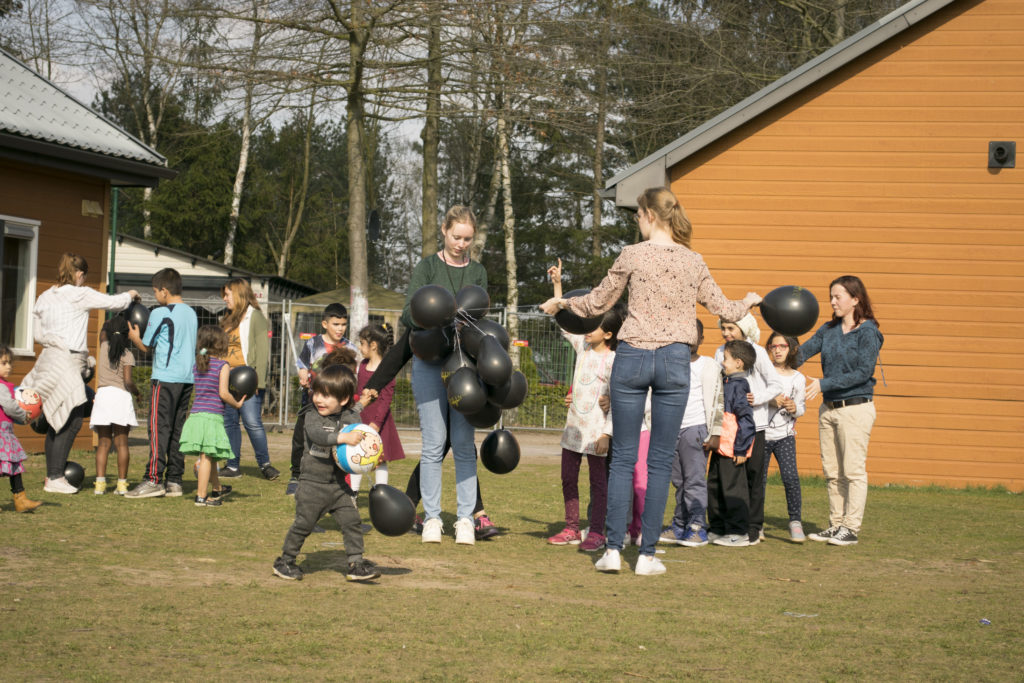

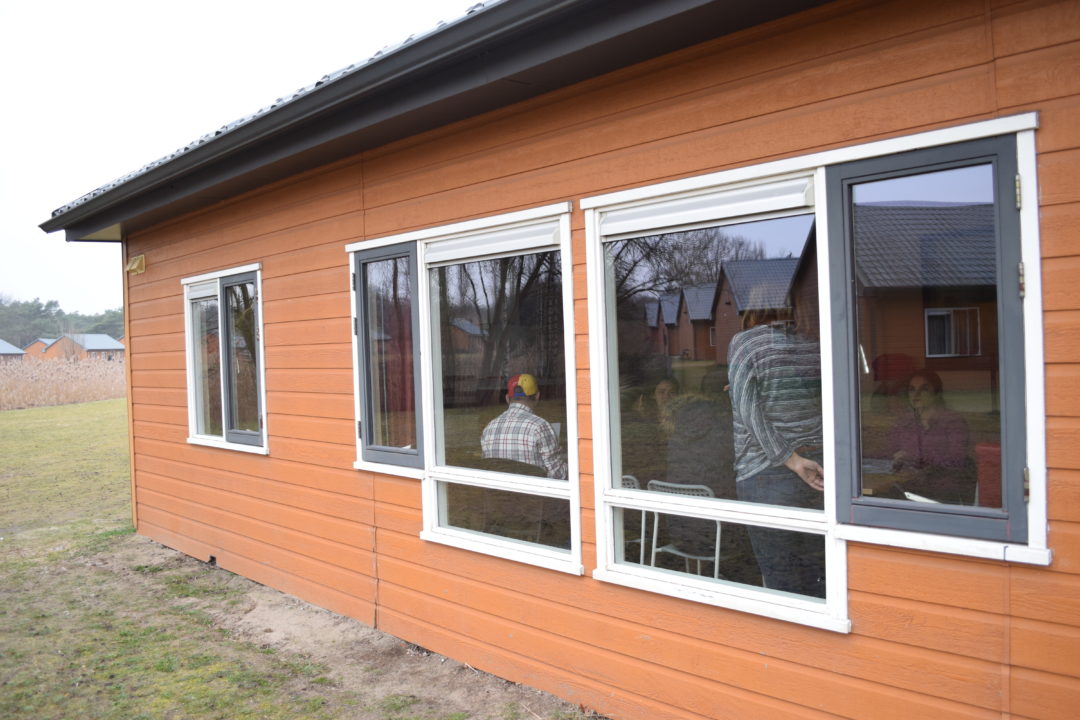

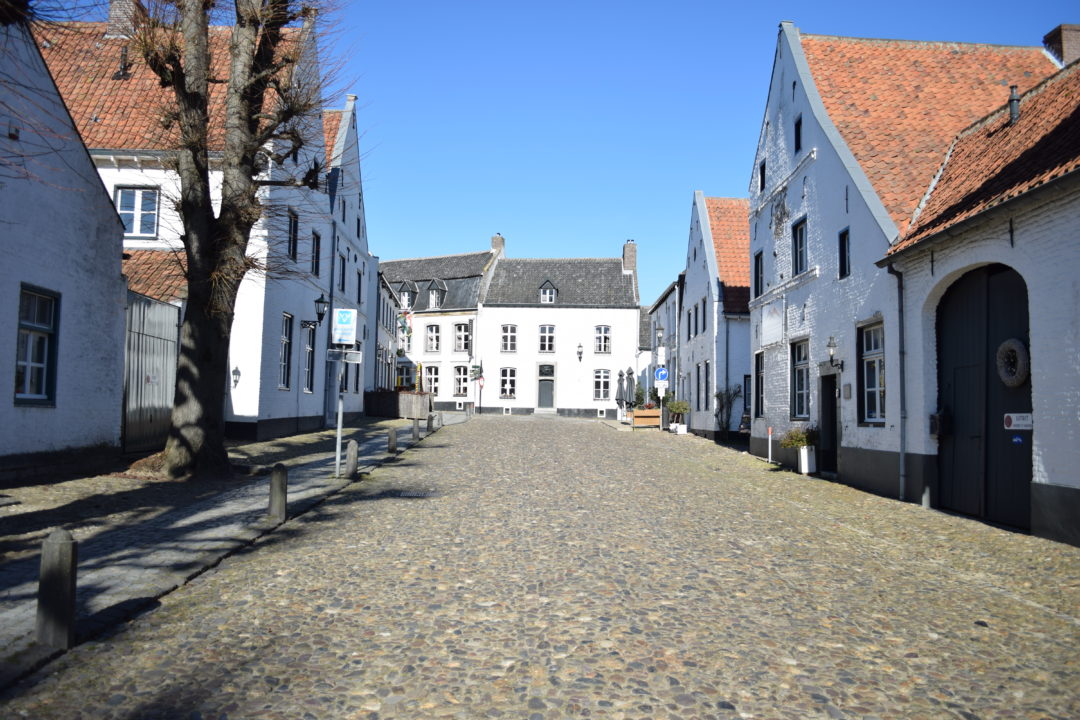
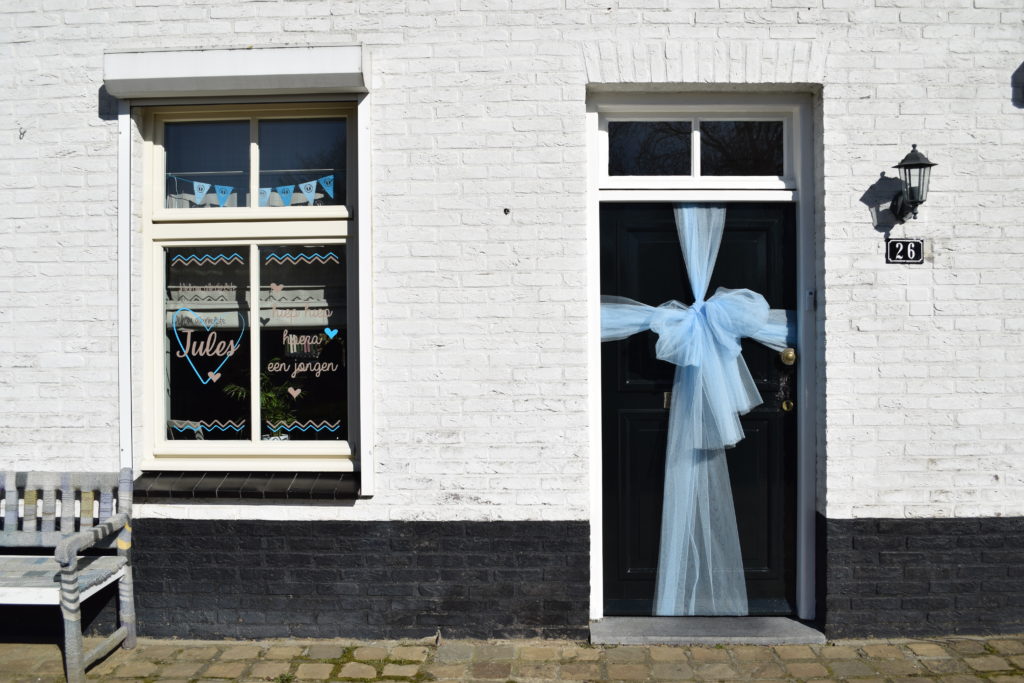
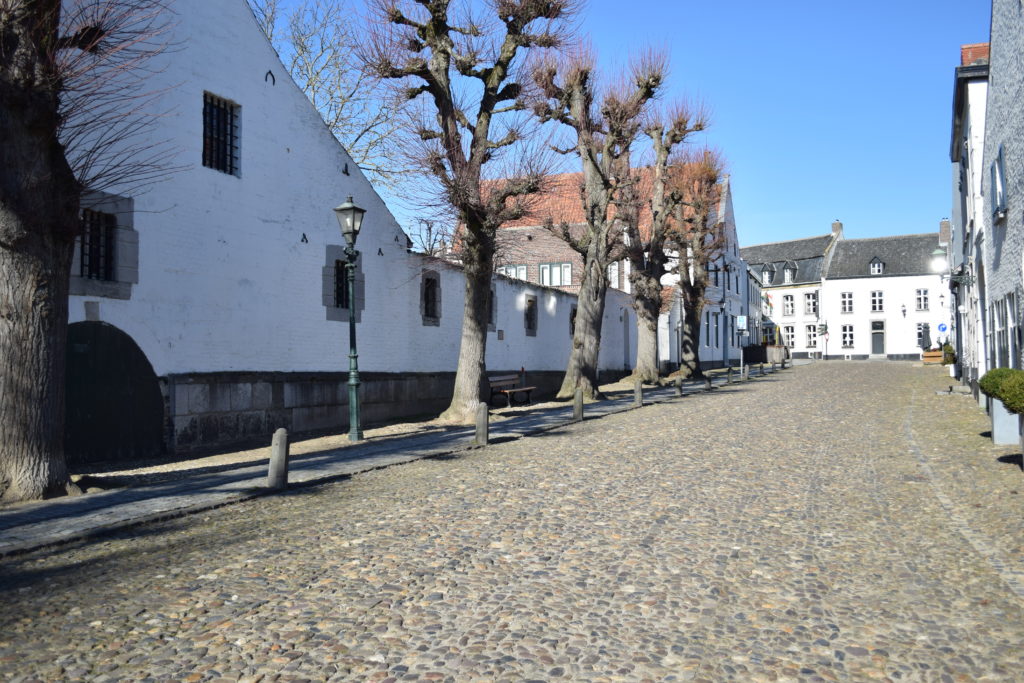
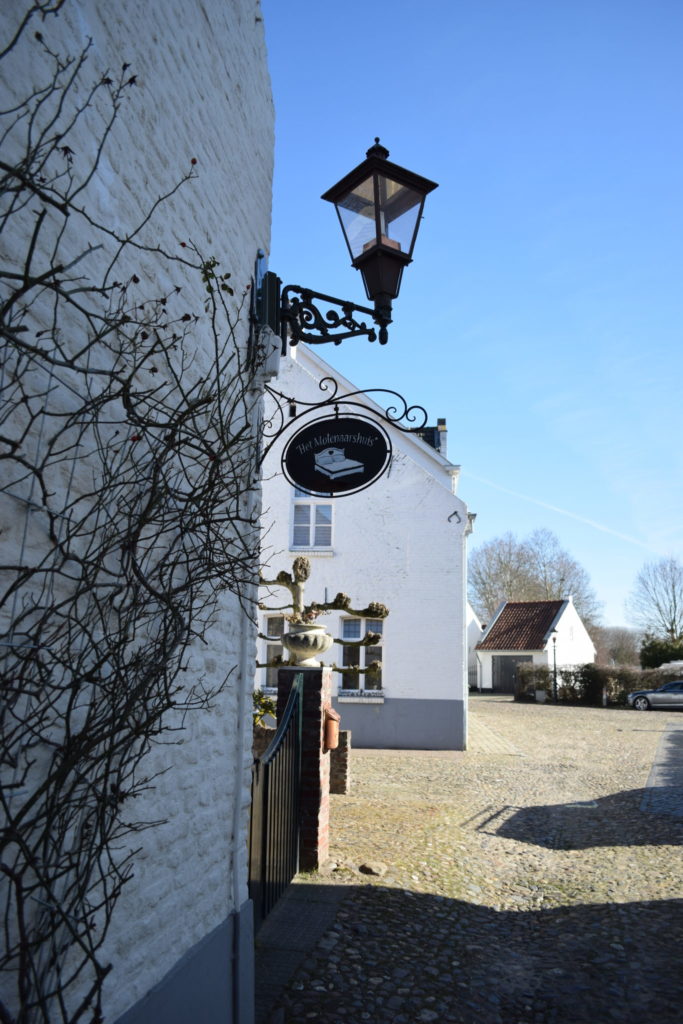
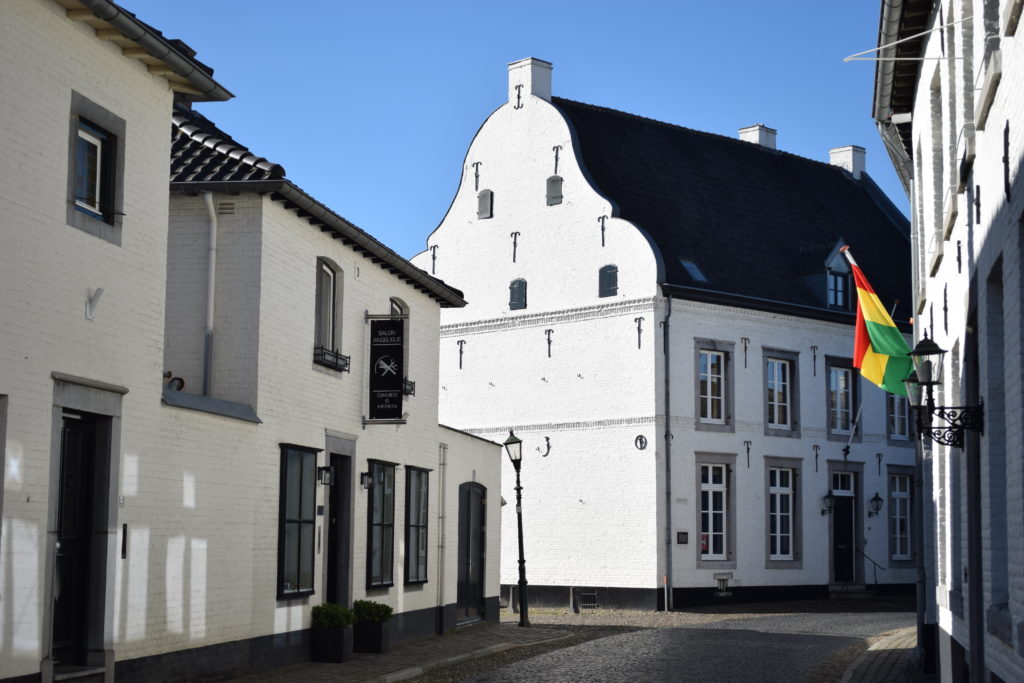
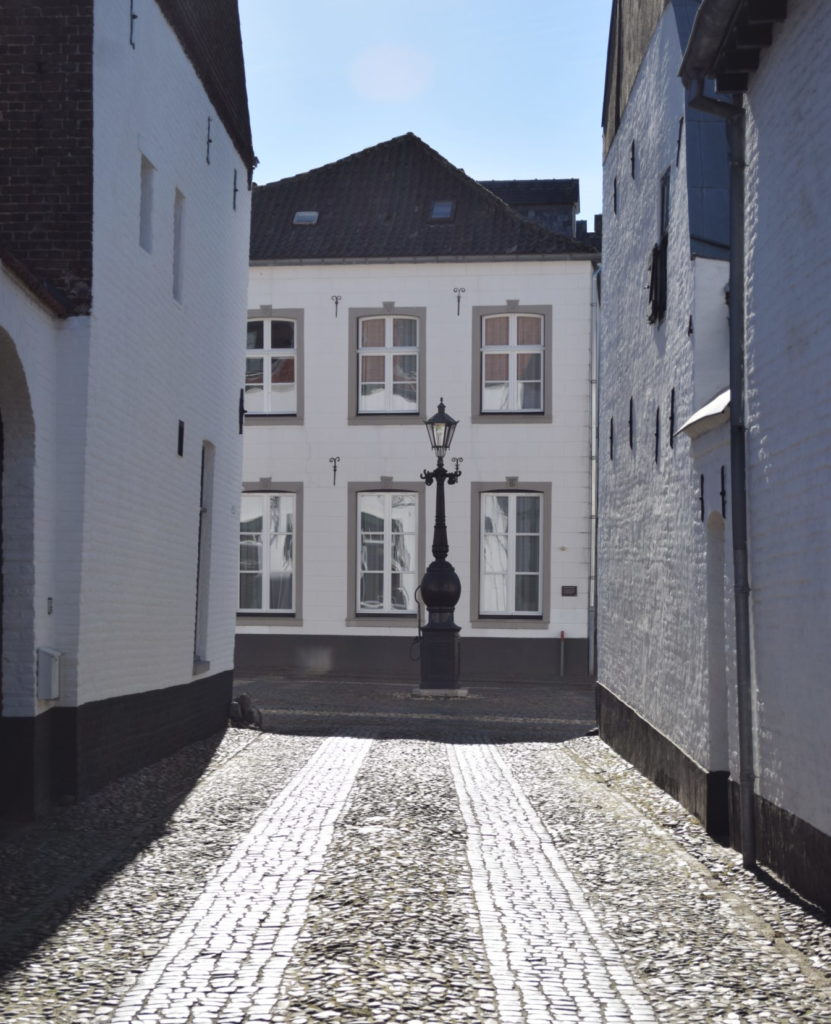
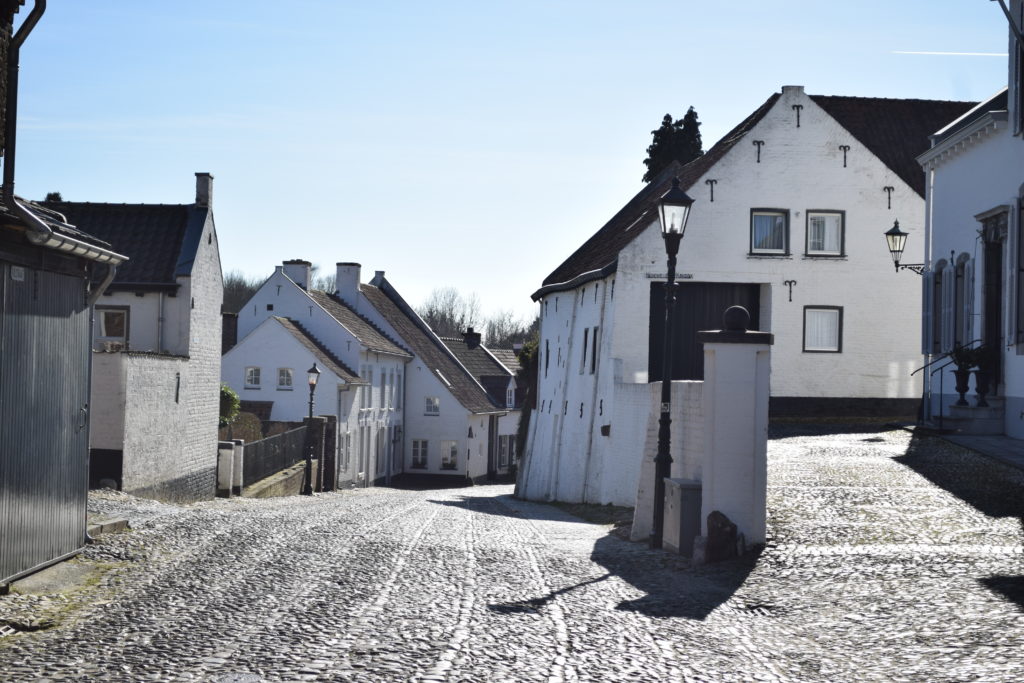
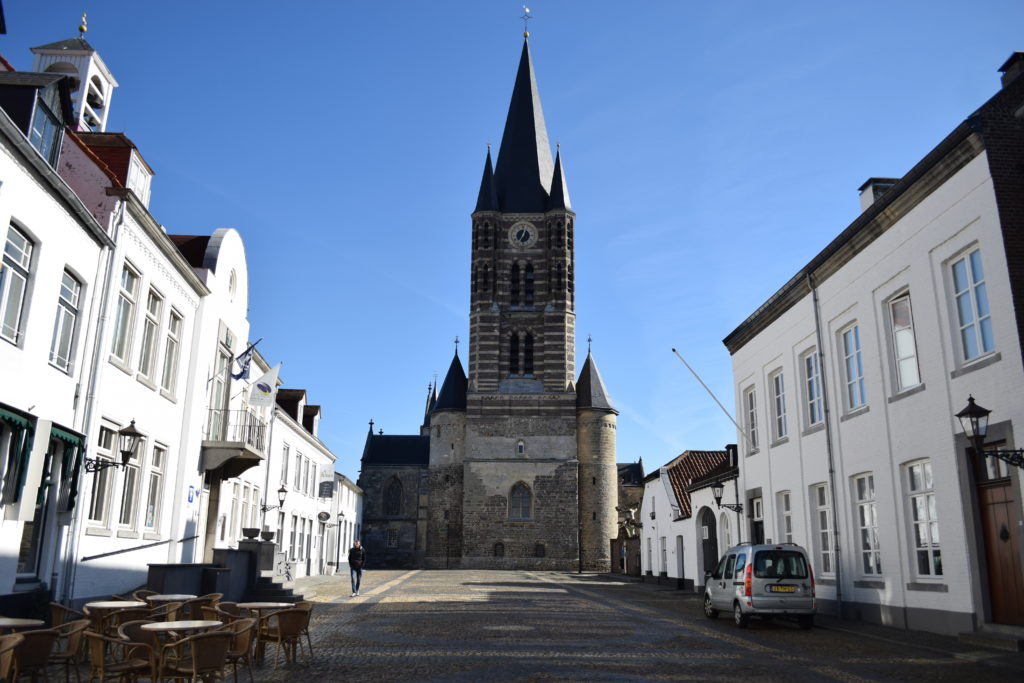
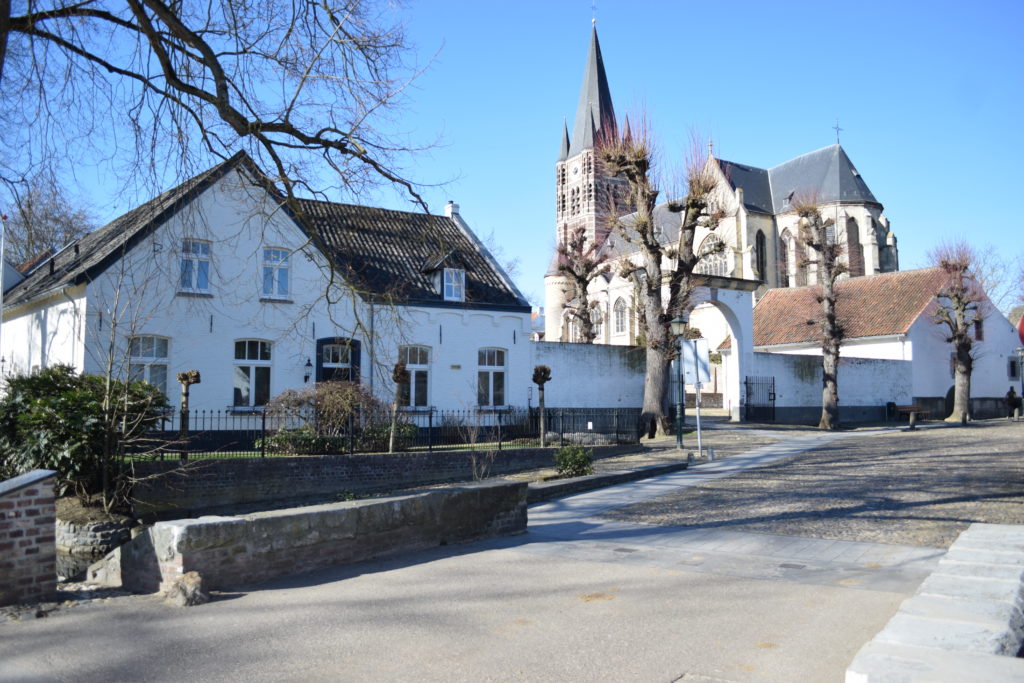
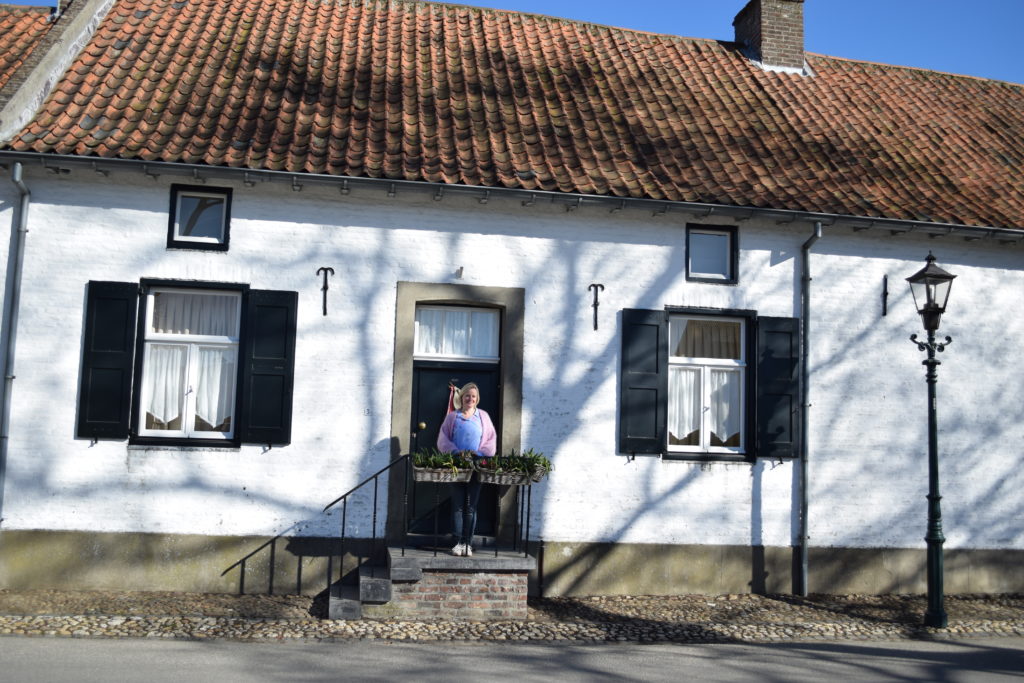
Recent Comments